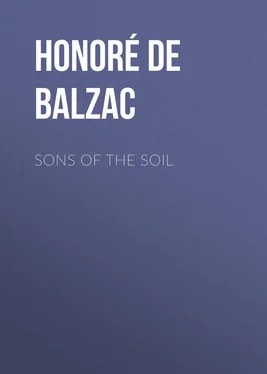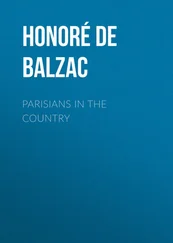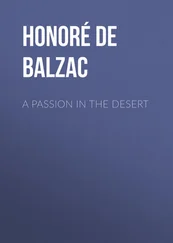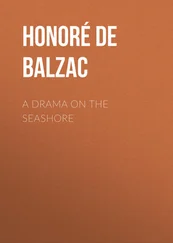Honoré Balzac - Sons of the Soil
Здесь есть возможность читать онлайн «Honoré Balzac - Sons of the Soil» — ознакомительный отрывок электронной книги совершенно бесплатно, а после прочтения отрывка купить полную версию. В некоторых случаях можно слушать аудио, скачать через торрент в формате fb2 и присутствует краткое содержание. Жанр: literature_19, foreign_antique, foreign_prose, на английском языке. Описание произведения, (предисловие) а так же отзывы посетителей доступны на портале библиотеки ЛибКат.
- Название:Sons of the Soil
- Автор:
- Жанр:
- Год:неизвестен
- ISBN:нет данных
- Рейтинг книги:5 / 5. Голосов: 1
-
Избранное:Добавить в избранное
- Отзывы:
-
Ваша оценка:
- 100
- 1
- 2
- 3
- 4
- 5
Sons of the Soil: краткое содержание, описание и аннотация
Предлагаем к чтению аннотацию, описание, краткое содержание или предисловие (зависит от того, что написал сам автор книги «Sons of the Soil»). Если вы не нашли необходимую информацию о книге — напишите в комментариях, мы постараемся отыскать её.
Sons of the Soil — читать онлайн ознакомительный отрывок
Ниже представлен текст книги, разбитый по страницам. Система сохранения места последней прочитанной страницы, позволяет с удобством читать онлайн бесплатно книгу «Sons of the Soil», без необходимости каждый раз заново искать на чём Вы остановились. Поставьте закладку, и сможете в любой момент перейти на страницу, на которой закончили чтение.
Интервал:
Закладка:
No; the drama here to be developed is not one of private life; it concerns things higher, or lower. Expect no scenes of passion; the truth of this history is only too dramatic. And remember, the historian should never forget that his mission is to do justice to all; the poor and the prosperous are equals before his pen; to him the peasant appears in the grandeur of his misery, and the rich in the pettiness of his folly. Moreover, the rich man has passions, the peasant only wants. The peasant is therefore doubly poor; and if, politically, his aggressions must be pitilessly repressed, to the eyes of humanity and religion he is sacred.
CHAPTER II. A BUCOLIC OVERLOOKED BY VIRGIL
When a Parisian drops into the country he is cut off from all his usual habits, and soon feels the dragging hours, no matter how attentive his friends may be to him. Therefore, because it is so impossible to prolong in a tete-a-tete conversations that are soon exhausted, the master and mistress of a country-house are apt to say, calmly, “You will be terribly bored here.” It is true that to understand the delights of country life one must have something to do, some interests in it; one must know the nature of the work to be done, and the alternating harmony of toil and pleasure, – eternal symbol of human life.
When a Parisian has recovered his powers of sleeping, shaken off the fatigues of his journey, and accustomed himself to country habits, the hardest period of the day (if he wears thin boots and is neither a sportsman nor an agriculturalist) is the early morning. Between the hours of waking and breakfasting, the women of the family are sleeping or dressing, and therefore unapproachable; the master of the house is out and about on his own affairs; a Parisian is therefore compelled to be alone from eight to eleven o’clock, the hour chosen in all country-houses for breakfast. Now, having got what amusement he can out of carefully dressing himself, he has soon exhausted that resource. Then, perhaps, he has brought with him some work, which he finds it impossible to do, and which goes back untouched, after he sees the difficulties of doing it, into his valise; a writer is then obliged to wander about the park and gape at nothing or count the big trees. The easier the life, the more irksome such occupations are, – unless, indeed, one belongs to the sect of shaking quakers or to the honorable guild of carpenters or taxidermists. If one really had, like the owners of estates, to live in the country, it would be well to supply one’s self with a geological, mineralogical, entomological, or botanical hobby; but a sensible man doesn’t give himself a vice merely to kill time for a fortnight. The noblest estate, and the finest chateaux soon pall on those who possess nothing but the sight of them. The beauties of nature seem rather squalid compared to the representation of them at the opera. Paris, by retrospection, shines from all its facets. Unless some particular interest attaches us, as it did in Blondet’s case, to scenes honored by the steps and lighted by the eyes of a certain person, one would envy the birds their wings and long to get back to the endless, exciting scenes of Paris and its harrowing strifes.
The long letter of the young journalist must make most intelligent minds suppose that he had reached, morally and physically, that particular phase of satisfied passions and comfortable happiness which certain winged creatures fed in Strasbourg so perfectly represent when, with their heads sunk behind their protruding gizzards, they neither see nor wish to see the most appetizing food. So, when the formidable letter was finished, the writer felt the need of getting away from the gardens of Armida and doing something to enliven the deadly void of the morning hours; for the hours between breakfast and dinner belonged to the mistress of the house, who knew very well how to make them pass quickly. To keep, as Madame de Montcornet did, a man of talent in the country without ever seeing on his face the false smile of satiety, or detecting the yawn of a weariness that cannot be concealed, is a great triumph for a woman. The affection which is equal to such a test certainly ought to be eternal. It is to be wondered at that women do not oftener employ it to judge of their lovers; a fool, an egoist, or a petty nature could never stand it. Philip the Second himself, the Alexander of dissimulation, would have told his secrets if condemned to a month’s tete-a-tete in the country. Perhaps this is why kings seek to live in perpetual motion, and allow no one to see them more than fifteen minutes at a time.
Notwithstanding that he had received the delicate attentions of one of the most charming women in Paris, Emile Blondet was able to feel once more the long forgotten delights of a truant schoolboy; and on the morning of the day after his letter was written he had himself called by Francois, the head valet, who was specially appointed to wait on him, for the purpose of exploring the valley of the Avonne.
The Avonne is a little river which, being swollen above Conches by numerous rivulets, some of which rise in Les Aigues, falls at Ville-aux-Fayes into one of the large affluents of the Seine. The geographical position of the Avonne, navigable for over twelve miles, had, ever since Jean Bouvet invented rafts, given full money value to the forests of Les Aigues, Soulanges, and Ronquerolles, standing on the crest of the hills between which this charming river flows. The park of Les Aigues covers the greater part of the valley, between the river (bordered on both sides by the forest called des Aigues) and the royal mail road, defined by a line of old elms in the distance along the slopes of the Avonne mountains, which are in fact the foot-hills of that magnificent amphitheater called the Morvan.
However vulgar the comparison may be, the park, lying thus at the bottom of the valley, is like an enormous fish with its head at Conches and its tail in the village of Blangy; for it widens in the middle to nearly three hundred acres, while towards Conches it counts less than fifty, and sixty at Blangy. The position of this estate, between three villages, and only three miles from the little town of Soulanges, from which the descent is rapid, may perhaps have led to the strife and caused the excesses which are the chief interest attaching to the place. If, when seen from the mail road or from the uplands beyond Ville-aux-Fayes, the paradise of Les Aigues induces mere passing travellers to commit the mortal sin of envy, why should the rich burghers of Soulanges and Ville-aux-Fayes who had it before their eyes and admired it every day of their lives, have been more virtuous?
This last topographical detail was needed to explain the site, also the use of the four gates by which alone the park of Les Aigues was entered; for it was completely surrounded by walls, except where nature had provided a fine view, and at such points sunk fences or ha-has had been placed. The four gates, called the gate of Conches, the gate of Avonne, the gate of Blangy, and the gate of the Avenue, showed the styles of the different periods at which they were constructed so admirably that a brief description, in the interest of archaeologists, will presently be given, as brief as the one Blondet has already written about the gate of the Avenue.
After eight days of strolling about with the countess, the illustrious editor of the “Journal des Debats” knew by heart the Chinese kiosk, the bridges, the isles, the hermitage, the dairy, the ruined temple, the Babylonian ice-house, and all the other delusions invented by landscape architects which some nine hundred acres of land can be made to serve. He now wished to find the sources of the Avonne, which the general and the countess daily extolled in the evening, making plans to visit them which were daily forgotten the next morning. Above Les Aigues the Avonne really had the appearance of an alpine torrent. Sometimes it hollowed a bed among the rocks, sometimes it went underground; on this side the brooks came down in cascades, there they flowed like the Loire on sandy shallows where rafts could not pass on account of the shifting channels. Blondet took a short cut through the labyrinths of the park to reach the gate of Conches. This gate demands a few words, which give, moreover, certain historical details about the property.
Читать дальшеИнтервал:
Закладка:
Похожие книги на «Sons of the Soil»
Представляем Вашему вниманию похожие книги на «Sons of the Soil» списком для выбора. Мы отобрали схожую по названию и смыслу литературу в надежде предоставить читателям больше вариантов отыскать новые, интересные, ещё непрочитанные произведения.
Обсуждение, отзывы о книге «Sons of the Soil» и просто собственные мнения читателей. Оставьте ваши комментарии, напишите, что Вы думаете о произведении, его смысле или главных героях. Укажите что конкретно понравилось, а что нет, и почему Вы так считаете.












